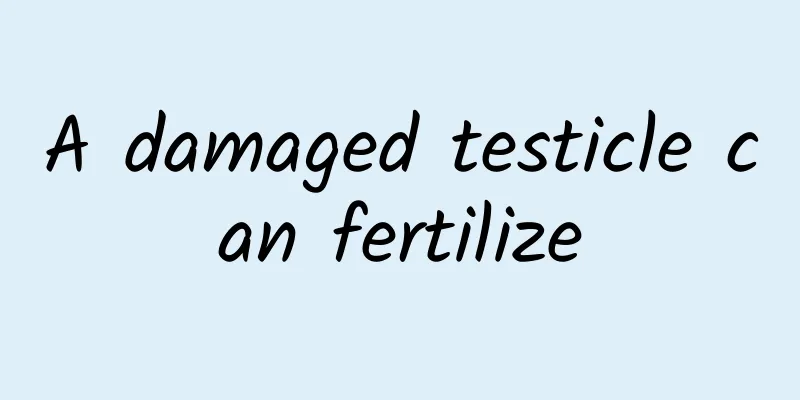What is the reason why men grind their teeth at night?

|
Many people don’t know what kind of sleeping position they are in at night, and what will happen after they fall asleep. Some people who don’t sleep well are particularly prone to grinding their teeth, snoring, and talking in their sleep. In fact, although these phenomena are relatively common, they also represent some diseases in the human body. For example, snoring is probably due to breathing and rhinitis, and grinding teeth is mostly due to oral diseases. So what is the reason why men grind their teeth when they sleep at night?
When sleeping, the upper and lower teeth bite and make a sound, which is what we call bruxism. Bruxism is caused by the continuous contraction of the masticatory muscles, and the movement of the masticatory muscles is controlled by the trigeminal nerve. Therefore, any factor that can affect the trigeminal nerve and the masticatory muscles can cause bruxism. It is more common in children and is related to many factors: 1) Excessive excitement and tension Excessive play before going to bed, excessive excitement or fatigue, or being frightened, restless and anxious, or learning stress can cause the excitement and inhibition processes of the cerebral cortex to lose balance, inducing temporary irregular spasms or contractions of the masticatory muscles, resulting in nocturnal bruxism. 2) Intestinal parasitic diseases Ascaris likes to move around in the intestines after the child falls asleep, and secretes a variety of toxins. The toxins stimulate the intestines, speed up intestinal peristalsis, cause indigestion, peri-umbilical pain, and disturbed sleep; if the toxins stimulate the nerves, they cause nerve excitement and lead to teeth grinding. Similarly, ticks can also secrete toxins and cause anal itching, affecting the child's sleep and making teeth grinding sounds. 3) Digestive dysfunction For example, if you eat too much before going to bed, a large amount of food fills the stomach and intestines and stimulates the digestive tract. The nerves transmit these stimuli to the brain, making the brain cells that manage digestion excited, causing teeth grinding through reflex action.
Some children are picky eaters, especially when it comes to vegetables, which results in nutritional imbalance and leads to deficiencies in calcium, phosphorus, various vitamins and trace elements, causing involuntary contraction of the facial chewing muscles at night, causing the teeth to grind back and forth. 5) Others Poor tooth development during the tooth replacement period, resulting in occlusal disorders, chronic periodontitis, psychomotor epilepsy, hysteria, or eating in dreams can all cause nocturnal bruxism. ●Long-term teeth grinding will affect sleep. Teeth grinding makes the face overly tired, causing soreness in the mandibular joint and local muscles when eating and talking, and the mandibular joint will make noises when opening the mouth. Damage to the teeth themselves. Damage to the tooth enamel causes dentin allergy, and toothache occurs when encountering cold, hot, sour, or spicy food. When grinding teeth, the chewing muscles will continue to contract. Over time, the chewing muscles will become thicker and the lower ends will become larger, and the child's facial shape will change. Some people who have not had their teeth bruxism corrected in childhood may have the habit of grinding their teeth for their entire lives. Therefore, if you find yourself grinding your teeth, you should seek symptomatic treatment immediately. ● If your child has intestinal parasites, you should get rid of them as soon as possible. Commonly used anthelmintics include Ascaris, Anleshi, Changchongqing, Levamisole, etc. If your child has rickets, you should supplement him with an appropriate amount of calcium and vitamin D preparations; provide your child with a comfortable and harmonious family environment, let him watch less TV at night, and avoid excessive excitement; his diet should be a combination of meat and vegetables, and he should get rid of the bad habit of being picky eaters. Dinner should be light and not excessive; ask a dentist to carefully check whether there is malocclusion of the teeth. If there is, the high points of the teeth need to be ground down, and dental pads should be prepared. Wearing them at night will reduce teeth grinding. ● Chinese medicine believes that nighttime teeth grinding is mostly related to food accumulation and fright, so use 30g of radix rehmanniae and 1.5g of coptis root to make a decoction. If you can’t sleep well at night, add 10g of Polygonum multiflorum, and if you have indigestion, add 10g of stir-fried barley sprouts, and take one dose daily. You can also use Chinese medicine that clears food, strengthens the spleen and harmonizes the stomach, such as Shenling Baizhu powder, and add cinnabar to reduce fright. Acupuncture of acupoints such as Hegu also has a certain effect.
Some people often make a clacking sound when they sleep at night, but when they are asked in the morning, they don't know why. Medically, this kind of teeth grinding is called nocturnal bruxism. Night bruxism is a phenomenon, not a disease, just like dreaming or talking in sleep. Excessive tension or excitement, bad occlusal habits, intestinal parasite infection, etc. often increase the frequency of night bruxism. Severe night bruxism will accelerate the wear of teeth and cause symptoms of excessive tooth sensitivity, and even cause periodontal tissue damage, masticatory muscle fatigue and temporomandibular joint dysfunction. ?The prevention and treatment of bruxism should start from the cause in order to achieve good results. (1) Eliminate tension Relieve unnecessary worries, be open-minded, arrange work reasonably, and take tranquilizers orally when necessary, 1-2 times a day, one tablet each time. (2) Develop good living habits? Maintain a regular daily routine, do not overeat at dinner, and avoid strenuous exercise before bedtime. Children in particular should develop hygienic habits. (3) Those who are suspected of having intestinal parasites? Under the guidance of a doctor, carry out deworming treatment to reduce the peristalsis of intestinal parasites and irritate the intestinal wall. |
<<: What medicine is effective for itchy glans penis?
>>: Why does my husband grind his teeth while sleeping?
Recommend
Six kinds of customized foods to make men full of energy
Men are stronger than women, they have well-devel...
The man has hair on his belly
In fact, both men and women have male hormones in...
What are the causes of hair loss in young men?
Hair loss is a disease that middle-aged and elder...
What to do if you are allergic to hormones? Chinese and Western medicine methods for treating allergies
Hormone allergy refers to the redness, swelling, ...
Why does the penis shrink?
When an adult male's sexual desire comes, the...
Tests for sperm quality
For men, fertility is a very important issue. Whe...
How to treat premature ejaculation in a healthy way
How to treat premature ejaculation in a healthy w...
What is the reason for the red spots and itching on the glans penis?
The glans of the male reproductive organ is a ver...
Several autumn kidney-nourishing ingredients to make your autumn more nourishing
Autumn is a good season for nourishing the body d...
A complete list of recipes for aphrodisiac wines. Keep these recipes safe.
In order to achieve the purpose of strengthening ...
What is the reason for premature ejaculation in men
With the increase of pressure and the fast pace o...
There are several types of hair loss. Which one is yours?
With the continuous progress of society, many peo...
How to exercise male ability
The quality of a man's sexual ability not onl...
Eight kinds of fruits mashed together to nourish the kidneys and strengthen sperm
Strong Fitness Fruit - Lychee Use 15 to 20 lychee...
Hair reflects kidney health, and this is what hair loss due to kidney deficiency looks like!
Dark circles"text-indent: 2em; text-align: le...









